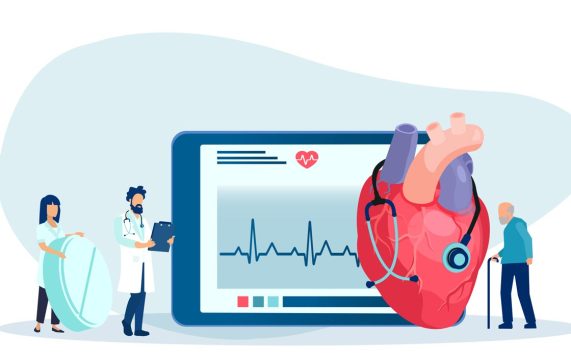Advertisment
Elevated systolic and diastolic blood pressure predictive of cardiovascular diseases

by Bruce Sylvester – Elevated systolic and diastolic blood pressure appear to be predictive of different cardiovascular diseases and at different ages, researchers reported in a special themed issue of The Lancet, published on May 29, 2014 ahead in advance of Hypertension 2014, the Joint Meeting of the European Society of Hypertension (ESH) and International Society of Hypertension (ISH), held in Athens, Greece on June 13-16.
The study was the first to examine effects of blood pressure on the risk of 12 different cardiovascular conditions as a first presentation of cardiovascular disease in various age groups. The findings suggest that persons with elevated systolic blood pressures are at greater risk of intracerebral haemorrhage, subarachnoid haemorrhage, and stable angina. Elevated diastolic blood pressure is a better indicator of the risk of abdominal aortic aneurysm.
“Our findings do not support the widely held assumptions that systolic and diastolic pressure have similar strong associations with the occurrence of all cardiovascular diseases across a wide age range”, said lead investigator Dr Eleni Rapsomaniki of The Farr Institute for Health Informatics Research in London.
The investigators used electronic health records of 1.25 million UK patients without cardiovascular disease, aged 30 years and older. The subjects had all been followed for a median 5.2 years to record a first cardiovascular event.
The researchers evaluated the data for the lifetime risk of developing specific cardiovascular diseases linked with high blood pressure, from age 30 through to 80.
They reported that, despite medical therapy, the lifetime burden of hypertension remains significant.
Notably, they found that a 30 year old person with hypertension (blood pressure ≥140/90 mm Hg), has a lifetime risk of cardiovascular disease of 63% compared with 46% for a person with healthy blood pressure. And the hypertensive person developed cardiovascular disease 5 years earlier.
Rapsomaniki said, “With lifetime risks this high, the need for new blood pressure lowering strategies is paramount. Our estimates provide vital new information that can be used to improve patient counselling and decision making for people with hypertension, which are currently based mainly on the risks of heart attack and stroke, and will help to focus guidelines and doctors to the cardiovascular conditions that might be more common and in which screening and treatments are more likely to have an effect.”
In a linked Comment, Professor Thomas Kahan from the Karolinska Institutet in Stockholm said, “Although the efficacy of antihypertensive drug therapy is undisputed, observational studies suggest that few patients reach target blood pressure. Several steps therefore need to be taken to improve antihypertensive treatment and control: the assessment of global cardiovascular risk in individual patients; improving caregiver organisation, support, and education; increasing drug compliance and treatment persistence to prescribed treatment; expanding the use of home blood pressure monitoring and 24 h ambulatory blood pressure monitoring; considering secondary forms of hypertension in difficult-to-treat patients; and referring patients with remaining uncontrolled hypertension to a specialist hypertension centre





